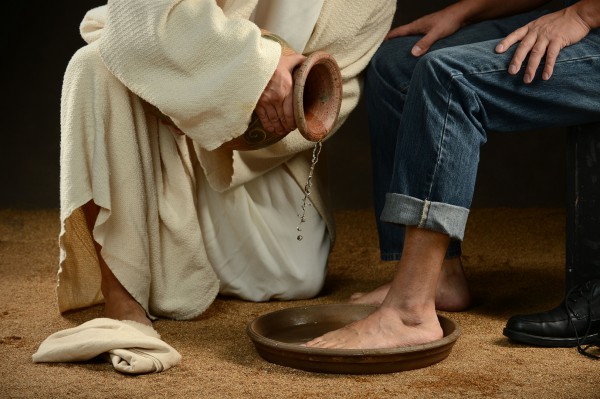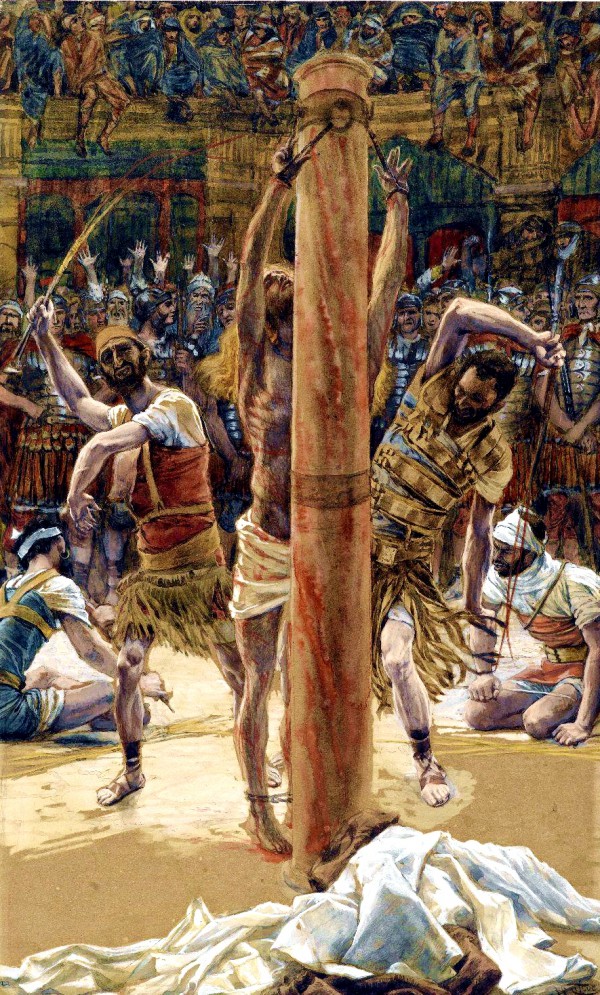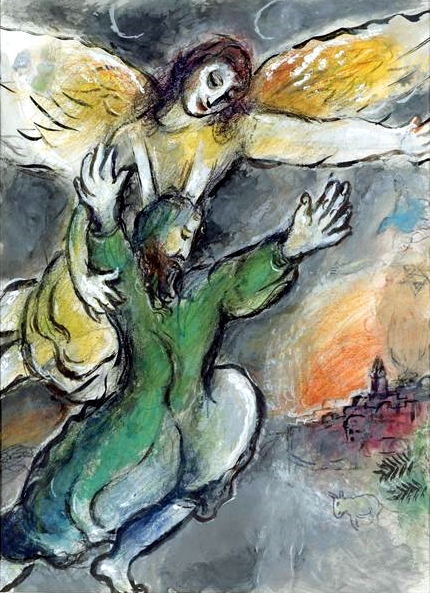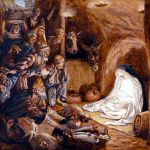“Whoever wants to be first must be slave of all. For even the Son of Man did not come to be served, but to serve.” (Mark 10:44–45)
Judaism teaches that we are to be servants of the Ribbonei shel Olam, Master of the Universe.
This servitude isn’t meant to humiliate; rather, being in humble subjection to the Creator is a state of being close to Him. (Journal of Jewish Communal Service, Volume 87, 2012, p. 108)
He is the Master that we answer to. Indeed, we were each born to be an eved HaShem (servant of God).
As we grow and discover the meaning of avodat HaShem (service of God), we begin to understand that to be effective servants, our goals need to include effecting change in this world, strengthening the community of Believers and the Jewish People, and growing in character and holiness.
Being a servant of the Lord is a call to leadership, especially leading by example. More than that, to be called the servant of the Lord is an incredible honor.
The Suffering Servant
“After He has suffered, He will see the light of life and be satisfied; by His knowledge My righteous servant will justify many, and He will bear their iniquities.” (Isaiah 53:11)
Service is such an essential aspect of our relationship with Adonai that one of the greatest Messianic prophecies in the Tanakh (Old Testament) is that of the Suffering Servant.
Messiah Himself is described as God’s Servant.
The 53rd chapter of Isaiah describes one who is led to the slaughter like a lamb to become “an offering for sin” (Isaiah 53:10). Scripture refers to this person as God’s “righteous servant” (v. 11).
Although many rabbis of old recognized that this passage spoke about the Messiah, modern-day rabbis believe that the suffering servant is actually Israel. This isn’t to say that God does not consider Israel His servant. Isaiah 41:8 confirms that the nation of Israel is the servant of the Lord. And from this nation comes the Suffering Servant.
Verses 1 through 12 vividly prophesy and describe Yeshua (Jesus) when He lived and ministered in Galilee and Jerusalem 2,000 years ago.
For the Jewish People today to recognize that Isaiah 53 speaks of the prophesied Messiah would mean that the Jewish People as a nation, not individually, understand that they have rejected God’s servant Yeshua.
So while the Jewish People still await the Messiah’s arrival as a nation, for Jewish Believers, Isaiah 53 is solid evidence that Yeshua is the Messiah.
Through His suffering, He took the wrath of God over sin on Himself that should have been placed on us — “He was pierced for our transgressions, He was crushed for our iniquities; the punishment that brought us peace was on Him, and by His wounds we are healed.” (Isaiah 53:5)
Those of us who have come to know our Creator through Yeshua HaMashiach (Jesus the Messiah) know that our salvation is a gift from above, a final atonement made for us even though we are unworthy of receiving it.
This very gift is a prime example of a great leader serving God. Yeshua’s sacrifice is in keeping with Yeshua’s teaching that the last will be first and the first last (Matthew 19:30). Through sacrificial service, we also can effect change in this world as servants of God.
Writing to the Corinthians, the apostle Paul suggests the nature of a servant’s heart when he highlights the qualities of a suffering servant:
“You are honored, we are dishonored! To this very hour we go hungry and thirsty, we are in rags, we are brutally treated, we are homeless. We work hard with our own hands. When we are cursed, we bless; when we are persecuted, we endure it; when we are slandered, we answer kindly. We have become the scum of the earth, the garbage of the world—right up to this moment.” (1 Corinthians 4:10–13)
Admittedly this may not seem like a pleasant way to live for most of us, yet it demonstrates the lengths to which Paul was willing to go in his quest to be a servant of God and of his fellow man.

“Now that I, your Lord and Teacher, have washed your feet, you also should wash one another’s feet.” (John 13:14)
Servants in the Bible
“Remember the wonders He has done, His miracles, and the judgments He pronounced, you His servants, the descendants of Abraham, His chosen ones, the children of Jacob.” (Psalm 105:5–6)
The idea of being a servant of the Lord is found throughout the Bible. Abraham, Moses, Joshua, Caleb, King David, and the prophets are all called God’s servant.
Moses is called God’s servant in one form or another more than any other person. (Exodus 14:31; Numbers 12:7; Deuteronomy 34:5; among other references)
In fact, Moses is referred to as the servant of the Lord so many times that it almost seems like an official title, yet he told the people to expect one like him: “The Lord your God will raise up for you a prophet like me from among you, from your fellow Israelites. You must listen to him.” (Deuteronomy 18:15)
That person is Yeshua (Jesus), and He is the clearest example of a servant of God.
The disciple Stephen confirmed this when he spoke before the Sanhedrin (Jewish court) saying, “This is the Moses who told the Israelites, ‘God will raise up for you a prophet like me from your own people.’” (Acts 7:37)
And the apostle John explained the role Yeshua played when he wrote, “For the law was given through Moses; grace and truth came through Yeshua HaMashiach.” (John 1:17)
This grace and truth enables each of us to be a blessing in this world as we reach out with a servant’s heart empowered by the Ruach HaKodesh (Holy Spirit).
The Greatness of Yeshua HaMashiach
“Who has believed our message and to whom has the arm of the Lord been revealed? He grew up before Him like a tender shoot, and like a root out of dry ground. He had no beauty or majesty to attract us to Him, nothing in His appearance that we should desire Him. He was despised and rejected by mankind, a man of suffering, and familiar with pain. Like one from whom people hide their faces He was despised, and we held Him in low esteem.” (Isaiah 53:1–3)
While we tend to look on those who suffer as inferior or deserving of punishment, the One who served us through His suffering, Yeshua, is truly great.
Yeshua is greater than God’s servant Abraham who is respected by both Jews and Muslims, as their father.
When the rabbis asked Yeshua, “Are you greater than Abraham?” (John 8:53), He answered that Abraham had looked forward to Yeshua’s coming and had now seen it, adding that He had existed before Abraham. (John 8:56, 58)
He is greater than Jacob. At Jacob’s well, He told the Samaritan woman that although his well provides her life-giving water—the water that He gives is “living water.” If she would drink from it, she would never again thirst but would have within her “a spring of water welling up to eternal life.” (John 4:13–14)
He is greater than David. When questioned by the rabbis, Yeshua referred to Psalm 110:1, pointing out that David called the Messiah “my Lord” (Matthew 22:45). This indicates that the Son of David is greater than David.
He is greater than Solomon. Although David’s son Solomon was world renowned as being the greatest Monarch, Yeshua declared in Matthew 12:42: “Now someone greater than Solomon is here.”
He is also greater than Jonah (a somewhat unwilling servant of God), which is made clear when He declared, “Now someone greater than Jonah is here.” (Matthew 12:41)
Yeshua is the greatest of all because “He was in the beginning with God. All things came into being through Him, and apart from Him nothing came into being that has come into being.” (John 1:2–3)
Yeshua came to us as the King of all kings and the humblest of all servants.
Service to the Father was His mission in life:
“I came to do the will of Him that sent Me.” (John 6:38)

“For even the Son of Man did not come to be served, but to serve, and to give His life a ransom for many.” (Mark 10:45)
Principles of Jewish Leadership
While there are many examples of servant-leadership in the Bible, the only person in the Torah who is directly commanded to be humble is a king; he must “not consider himself better than his fellow Israelites.” (Deuteronomy 17:20)
The 12th century Jewish scholar Rabbi Moshe Ben Maimon (Maimonides) said that a king “should be gracious and merciful to the small and the great, involving himself in their good and welfare. He should protect the honor of even the humblest of people.” (Chabad)
We see this truth in action in 1 Kings 12:7 where the elders counseled the son of the now dead King Solomon, King Rehoboam, to be a servant to the people. Sadly, he rejected that advice and, consequently, Israel was divided into two kingdoms.
Dr. Hal M. Lewis, president of Spertus Institute for Jewish Learning and Leadership, writes that “leaders must see themselves as serving the needs of their followers by enhancing their capacity, by motivating and empowering them, and by developing leadership in others.” (My Jewish Learning)
He goes as far as to say that “only those who transcend their own agendas in order to serve the long-term needs of the people meet Judaism’s test of effective leadership.”
In stressing the servanthood nature of leadership, Dr. Lewis quotes the Talmud: “One who is appointed over a community becomes the servant of the community.” (Horayot 10a)

An ultra-Orthodox Jewish man helps a non religious Jewish man to fulfill the commandment in Deuteronomy 6:8 by putting on tefillin (phylacteries) for prayer.
Sadly, the church has historically failed to follow the template of servanthood set out by Messiah Yeshua. An article by Dr. John Garr, president of the Hebraic Christian Global Community explains:
“The church … has been victimized by leaders who demanded absolute authority, ruled with iron fists, and smashed any dissent or dissenters. Beginning with the monarchial bishops of the Eastern church, continuing with the papacy of the Western church, and remaining consistent in much of Protestantism, Christian leadership has been patterned after imperial empires and the arrogated perquisites of secular governments. Jesus rightly said that autocratic dominance is the hallmark of Gentile cultures.” (Sid Roth)
Dr. Garr also stresses that the leader must be adaptable “not by adapting followers to himself, but by adapting himself to the needs of the people and to the situation that he is trying to influence.” He cites Paul who said in 1 Corinthians 9:22, “I have become all things to all people.”
Pastor Tom Shepherd says that we can begin to have a servant’s spirit by being committed to following God, trusting that God is in charge, obeying God’s word, and walking in faith.
We can start serving where we are — in our communities, our workplaces, anywhere we see a need we can fill. (Sermon Central)

“If anyone is poor among your fellow Israelites in any of the towns of the land the LORD your God is giving you, do not be hardhearted or tightfisted toward them.” (Deuteronomy 15:7)
In his song “Gotta Serve Somebody,” Bob Dylan said it most pointedly: “Well, it may be the devil or it may be the Lord, but you’re gonna have to serve somebody.”
In writing that, he may have been thinking about the great leader Joshua who told the people: “If serving the Lord seems undesirable to you, then choose for yourselves this day whom you will serve, whether the gods your ancestors served beyond the Euphrates, or the gods of the Amorites, in whose land you are living. But as for me and my household, we will serve the Lord.” (Joshua 24:15)
Being chosen did not mean the Israelites could just sit back and be served by others. God made it clear that “the sons of Israel are My servants; they are My servants whom I brought out from the land of Egypt. I am the LORD your God.” (Leviticus 25:55)
The Lord has brought all Believers out of bondage to sin, grafting Gentiles into the same blessings and responsibilities as Israel (Romans 11).
All Believers — Jew and Gentile — are His servants.
It’s our privilege to build up and lead others into God’s presence, humbly and with a heart full of praise as it is written in Psalm 113:1: “Praise the Lord! Praise, O servants of the Lord, Praise the name of the Lord.”
As we know from Romans 6:22, we have been freed from sin not so that we can do whatever pleases us but so that we will be sanctified and inheritors of eternal life. We show our appreciation by loving God and loving our fellow man (Mark 12:30–31).
We can only do this by possessing a servant’s heart, one that desires to build up treasures not for ourselves, but for service in the Kingdom of God.
And in doing so, we follow the example of Yeshua, the suffering servant who sacrificed His life for us, willingly, upon the tree (Galatians 3:13).





















